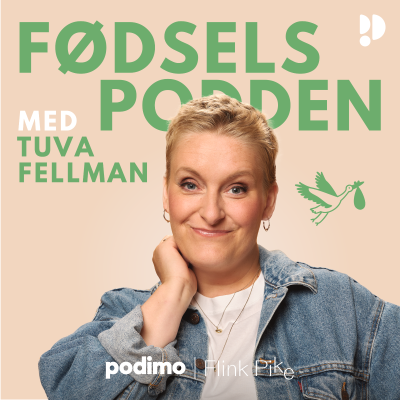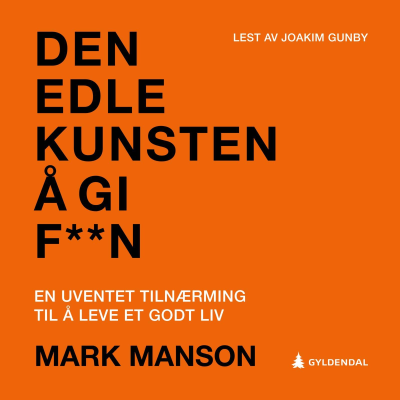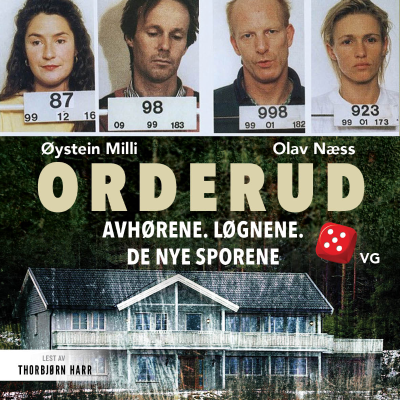
Mental Disorder
Podkast av Jonah Davids
The science and politics of mental health www.mentaldisorder.ca
Prøv gratis i 14 dager
Etter prøveperioden kun 99,00 kr / Måned.Avslutt når som helst.
Alle episoder
11 EpisoderCarolyn Gorman is a Paulson Policy Analyst at the Manhattan Institute studying mental health policy. She joins me to discuss her new report “School-Based Mental-Health Initiatives: Challenges and Considerations for Policymakers, [https://manhattan.institute/article/school-based-mental-health-initiatives-challenges-and-considerations-for-policymakers]” which explores the history of mental health programs in schools and examines the limited evidence supporting their effectiveness. We talk about the different types of school-based mental health interventions and how they are used in classrooms today, whether pop psychology and therapy culture fill a vacuum in schools that religious/character/moral education would typically fill, and what schools can do to effectively improve student well-being. We conclude with some thoughts on whether there really is a youth mental health crisis, and the screen time/mental health debate. You can find the podcast on Apple Podcasts [https://podcasts.apple.com/ca/podcast/mental-disorder/id1702432326], Spotify [https://open.spotify.com/show/0HoKSEyFlGXl74mtjFe4qq], and YouTube [https://www.youtube.com/@jonahdavids1]. Links: * Carolyn’s new report [https://manhattan.institute/article/school-based-mental-health-initiatives-challenges-and-considerations-for-policymakers] * Daniel Goleman, [https://en.wikipedia.org/wiki/Emotional_Intelligence]Emotional Intelligence: Why it Can Matter More Than IQ [https://en.wikipedia.org/wiki/Emotional_Intelligence] * Allen Frances, “No Treatment as the Prescription of Choice [https://pubmed.ncbi.nlm.nih.gov/7235855/]” * Jonathan Haidt, [https://www.anxiousgeneration.com/book]The Anxious Generation [https://www.anxiousgeneration.com/book] * Carolyn’s review of the Anxious Generation [https://www.city-journal.org/article/how-smartphone-based-childhood-works-against-making-children-resilient] Get full access to Mental Disorder at www.mentaldisorder.ca/subscribe [https://www.mentaldisorder.ca/subscribe?utm_medium=podcast&utm_campaign=CTA_4]
Jules Evans is the Director of the Challenging Psychedelic Experiences Project [https://challengingpsychedelicexperiences.com] and the lead author and editor of the Substack newsletter Ecstatic Integration [https://www.ecstaticintegration.org]. Kristin Nash is the executive director of the William G. Nash Foundation [https://www.williamgnash.org] which focuses on harm reduction and psychedelic safety, and is involved with an important initiative to improve public communication on psychedelics as part of the new California psychedelic bill. The two join me on the podcast for an exploratory conversation on how to communicate the risks of psychedelic drugs. We talk about the variety and likelihood of adverse psychedelic experiences, the recent case of a pilot who tried to crash a plane while on mushrooms [https://www.nbcnews.com/news/us-news/pilot-accused-trying-stop-engines-flight-taking-magic-mushrooms-questi-rcna124745], whether it’s possible to truly consent to the psychospiritual changes brought on by some drugs, and the dangers of messaging psychedelics as a mental health treatment. We conclude by painting a picture of what we would want public health messaging around these drugs to be to reduce negative experiences and ensure those most at risk avoid them. You can find the podcast on Apple Podcasts [https://podcasts.apple.com/ca/podcast/mental-disorder/id1702432326], Spotify [https://open.spotify.com/show/0HoKSEyFlGXl74mtjFe4qq], and YouTube [https://www.youtube.com/@jonahdavids1]. Links: * Jules Evans, How to Communicate the Risk of Psychedelics [https://www.ecstaticintegration.org/p/how-to-communicate-the-risks-of-psychedelics?utm_source=post-email-title&publication_id=1072242&post_id=140387520&utm_campaign=email-post-title&isFreemail=true&r=cc36l&triedRedirect=true] * Jane Hu, 5 Questions for Kristin Nash [https://themicrodose.substack.com/p/5-questions-for-kristin-nash] * Canadian Psychedelic Survey [https://www.liebertpub.com/doi/abs/10.1089/psymed.2023.0002?journalCode=psymed] * Jules Evans, Extended Difficulties Following the Use of Psychedelic Drugs [https://www.ncbi.nlm.nih.gov/pmc/articles/PMC10597511/] * Huberman Lab, Dr. Robin Carhart-Harris: The Science of Psychedelics for Mental Health [https://www.youtube.com/watch?v=fcxjwA4C4Cw] * Tate et al., Trends in Hallucinogen-associated Emergency Department Visits and Hospitalizations in California from 2016–2021 [https://www.medrxiv.org/content/10.1101/2023.08.18.23294275v1] * Andrew Cutler, Eve Theory of Consciousness 3.0 [https://www.vectorsofmind.com/p/eve-theory-of-consciousness-v3?utm_source=profile&utm_medium=reader2] * Clinicaltrials.gov [http://clinicaltrials.gov] * Theo Von Describes the Difference Between DMT & Ayahuasca [https://www.youtube.com/watch?v=32UI2bb8iDg] Get full access to Mental Disorder at www.mentaldisorder.ca/subscribe [https://www.mentaldisorder.ca/subscribe?utm_medium=podcast&utm_campaign=CTA_4]
William Fleming holds a PhD in sociology from The University of Cambridge, and is currently a post-doctoral research fellow at Oxford University’s Wellbeing Research Center. He joins me on the podcast to talk about the lack of evidence for workplace mental health and wellbeing initiatives. William starts by giving a history of workplace wellbeing initiatives tracing back to the British Quakers who provided food, housing, and recreational facilities for their employees beginning in the 18th century. We then get into the popular “business case” for investing in employee wellbeing initiatives before turning to William’s research which finds that these have no effect. We conclude by discussing what changes to organizational practices can actually improve employee mental health, and tradeoffs between individual and collective wellbeing. You can find the podcast on Apple Podcasts [https://podcasts.apple.com/ca/podcast/mental-disorder/id1702432326], Spotify [https://open.spotify.com/show/0HoKSEyFlGXl74mtjFe4qq], and YouTube [https://www.youtube.com/@jonahdavids1]. Links: * William Fleming, Employee well-being outcomes from individual-level mental health interventions: Cross-sectional evidence from the United Kingdom. [https://onlinelibrary.wiley.com/doi/10.1111/irj.12418] * Ellen Barry, Workplace Wellness Programs Have Little Benefit, Study Finds. [https://www.nytimes.com/2024/01/15/health/employee-wellness-benefits.html] * Jonah Davids, Corporate Mental Health Programs Don't Work. [https://www.mentaldisorder.ca/p/corporate-mental-health-programs] * Jesse Singal, The Quick Fix. [https://www.amazon.com/Quick-Fix-Psychology-Cant-Social/dp/B089QR9PT9/ref=sr_1_1?crid=1GB382SDC0DC5&dib=eyJ2IjoiMSJ9.OjuFTozCTsnOWRTM84JSKg.rYsU0eB0LPGfxn62fHgn1n5X0Is_Zfj4ebF8mhyi4A8&dib_tag=se&keywords=Jessie+Singal%2C+The+Quick+Fix.&qid=1707972024&s=books&sprefix=jessie+singal%2C+the+quick+fix.%2Cstripbooks-intl-ship%2C88&sr=1-1] * Kelly et al., Overload: How Good Jobs Went Bad and What We can Do about It. [https://www.amazon.com/Overload-Good-Jobs-Went-about/dp/B085D7L3R9/ref=sr_1_1?crid=31T3G27XXCMPP&dib=eyJ2IjoiMSJ9.vZChjwXGXUOUEjMg30M14O8uLMjXe2_ZChYzda7C-fEPcRHnVWidLbpyi6Bp6nmjNdMNUEysrlK860bwhkIDQUaC_VrQgMp4x8jZ4-DBtRXRmPZs6IHU6TYaEi-q4zGKstsInMmdly_v_M8ij6CdO3ykEDJWe7_tm9pYQs6kiqsNXvOhXJ4X0yNVwei8fmB_soKBwzQChs48vgBiylK60VC-740focjdsq6YawyO0JE.kZC6a1s_3tXF4kVOI1xxqHt8s8DxzmCrmB0ZIyZae-E&dib_tag=se&keywords=“overload”+sociology&qid=1707972072&sprefix=overload+sociology%2Caps%2C125&sr=8-1] * David Graeber, B******t Jobs: A Theory. [https://www.amazon.com/B******t-Jobs-Theory-David-Graeber/dp/150114331X] * Soffia et al., Alienation is not 'b******t': An empirical critique of Graeber's theory of BS jobs. [https://journals.sagepub.com/doi/abs/10.1177/09500170211015067] * Simon Walo, ‘B******t’ After All? Why People Consider Their Jobs Socially Useless. [https://journals.sagepub.com/doi/10.1177/09500170231175771] * William’s Twitter [https://twitter.com/WillJFleming], LinkedIn [https://uk.linkedin.com/in/william-fleming-a5a2ab129], Email [http://william.fleming@hmc.ox.ac.uk] Get full access to Mental Disorder at www.mentaldisorder.ca/subscribe [https://www.mentaldisorder.ca/subscribe?utm_medium=podcast&utm_campaign=CTA_4]
Caleb Ontiveros is the founder of Stoa [https://stoameditation.com/], an app that combines the ancient philosophy of stoicism with mindfulness and meditation. He writes The Stoa Letter [http://www.stoaletter.com/subscribe], co-hosts the podcast Stoa Conversations [https://stoameditation.com/blog/stoa-conversations/], and is the editor of The Classical Futurist [https://classicalfuturist.substack.com/]. Caleb and I talk about the philosophy of Stoicism and what Stoics have to say about psychology, mental health, and human flourishing. We discuss Stoic conceptions of virtue, emotion, and self-control; similarities between Stoicism, System 1 and System 2 thinking, and cognitive behavioral therapy; and why Stoic thinkers and practices appeal so much to men. We conclude by speculating about whether today’s “meaning crisis” has always been with us, and whether material progress undermines opportunities to be virtuous. You can find the podcast on Apple Podcasts [https://podcasts.apple.com/ca/podcast/mental-disorder/id1702432326], Spotify [https://open.spotify.com/show/0HoKSEyFlGXl74mtjFe4qq], and YouTube [https://www.youtube.com/@jonahdavids1]. Links: * Stoa Conversations, How to Think Fast, Slow, and Stoic [https://stoameditation.com/blog/how-to-think-fast-slow-and-stoic-episode-79/]. * Brittany Polat, How Do Stoics Care? [https://modernstoicism.com/how-do-stoics-care-by-brittany-polat/] * Johnny Thomson, Naive Stoicism: Why Pop Philosophy is Bad for your Mental Health. [https://bigthink.com/thinking/naive-stoicism-why-pop-philosophy-is-bad-for-your-mental-health/] * Mamat & Anderson, Improving Mental Health by Training the Suppression of Unwanted Thoughts. [https://www.science.org/doi/10.1126/sciadv.adh5292] * Mental Disorder Podcast, Kevin McCaffree - Suicide Research has Failed [https://www.mentaldisorder.ca/p/kevin-mccaffree-suicide-research]. * Philipp Reiff, Freud: The Mind of the Moralist [https://www.amazon.com/Freud-Mind-Moralist-Philip-Rieff/dp/0226716392]. * Thomas Szasz, The Myth of Psychotherapy. [https://www.amazon.com/Myth-Psychotherapy-Religion-Rhetoric-Repression/dp/0815602235/ref=sr_1_4?dib=eyJ2IjoiMSJ9.8wfCbraF4G0KRLEWdjs_tZkuHTUgkCvRfoqfoV10EnzLn9I9mY35EV9CcDHHt2i7DnWZbS9uU5jvgAqUpe0M8f5U_Qpt0p7OuikR9OlUOPKVp8lDvUkTuEZU8B4ekojDBy4KG3faxI0vc4VNzDBCGA.f25pYanxMm8Rg8Fl1mx3vapKLSHZSzU_4J8wLVh8X6o&dib_tag=se&keywords=Thomas+Szasz&qid=1705295785&s=books&sr=1-4] * Bruce Alexander, The Globalization of Addiction. [https://www.amazon.ca/Globalisation-Addiction-Bruce-Alexander/dp/0199230129] * The Stoa App. [https://stoameditation.com] * Caleb’s Substack [https://calebontiveros.substack.com], Twitter [https://twitter.com/calebmontiveros]. Get full access to Mental Disorder at www.mentaldisorder.ca/subscribe [https://www.mentaldisorder.ca/subscribe?utm_medium=podcast&utm_campaign=CTA_4]
Awais Aftab is a psychiatrist and Clinical Assistant Professor of Psychiatry at Case Western Reserve University and writes the substack Psychiatry at the Margins [https://www.psychiatrymargins.com]. I invited him on the podcast to talk about how criticisms of psychiatry – such as critical, philosophical, and anti-psychiatry – affect mainstream theory and practice. We also discuss his recent exchange with Mad in America founder Robert Whitaker on progress in psychiatry, whether psychiatrists are responsible for rising rates of mental illness, and why many in the mental health field are now eyeing the public health approach to treatment. We conclude by talking about the difficulty of interpreting and acting upon psychiatric studies, with Awais arguing critics’ standards of evidence are so high they dismiss useful treatments like antidepressants out of hand. You can find the podcast on Apple Podcasts [https://podcasts.apple.com/ca/podcast/mental-disorder/id1702432326], Spotify [https://open.spotify.com/show/0HoKSEyFlGXl74mtjFe4qq], and YouTube [https://www.youtube.com/@jonahdavids1]. Links: * Awais Aftab, Epistemic Justice and Psychiatric Clinical Practice [https://www.psychiatrymargins.com/p/epistemic-justice-and-psychiatric]. * Anti-psychiatry reading list [https://www.goodreads.com/shelf/show/anti-psychiatry]. * Awais Aftab, Antipsychiatry as an Analogue of Populism [https://www.psychiatrymargins.com/p/antipsychiatry-populism]. * Freedland and Zorumski, Success Rates in Psychiatry [https://jamanetwork.com/journals/jamapsychiatry/article-abstract/2802547]. * Peter Simons, JAMA Psychiatry: No Evidence that Psychiatric Treatments Produce “Successful Outcomes [https://www.madinamerica.com/2023/03/does-psychiatry-improve-outcomes-we-dont-know-according-to-jama-psychiatry/]. * Awais Aftab, Lost and Found in Translation: From JAMA Psychiatry to Mad in America [https://www.psychiatrymargins.com/p/lost-and-found-in-translation-from]. * Robert Whitaker, Answering Awais Aftab: When it Comes to Misleading the Public, Who is the Culprit? [https://www.madinamerica.com/2023/04/answering-awais-aftab/] * Awais Aftab, What Whitaker wants us to know about Mad in America [https://www.psychiatrymargins.com/p/what-whitaker-wants-us-to-know-about]. * Robert Whitaker, Anatomy of an Epidemic [https://www.amazon.com/Anatomy-Epidemic-Bullets-Psychiatric-Astonishing-ebook/dp/B0036S4EGE]. * Awais Aftab, The Case for Antidepressants in 2022 [https://www.psychiatrymargins.com/p/the-case-for-antidepressants-in-2022]. * Awais’ Substack [https://www.psychiatrymargins.com], writings in Psychiatric Times [https://www.psychiatrictimes.com/authors/awais-aftab-md], professional website [https://www.awaisaftab.com], Google Scholar [https://scholar.google.com/citations?user=zXT0TzQAAAAJ&hl=en], Twitter [https://twitter.com/awaisaftab]. Get full access to Mental Disorder at www.mentaldisorder.ca/subscribe [https://www.mentaldisorder.ca/subscribe?utm_medium=podcast&utm_campaign=CTA_4]
Tilgjengelig overalt
Lytt til Podimo på telefonen, nettbrettet, datamaskinen eller i bilen!
Et univers av underholdning på lyd
Tusenvis av lydbøker og eksklusive podkaster
Ingen annonser
Ikke kast bort tid på å lytte til annonser når du lytter til Podimos innhold.
Prøv gratis i 14 dager
Etter prøveperioden kun 99,00 kr / Måned.Avslutt når som helst.
Eksklusive podkaster
Uten reklame
Gratis podkaster
Lydbøker
20 timer i måneden



















